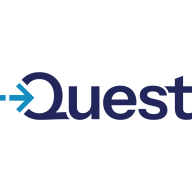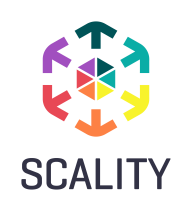


Scality RING and QoreStor compete in the scalable storage solutions category. QoreStor has an edge due to its superior deduplication and compression capabilities which significantly reduce storage costs.
Features: Scality RING offers S3 and CDMI compatibility essential for cloud applications, scalability with limitless storage, and enhanced data resilience. QoreStor features advanced deduplication and compression, integrates seamlessly with various backup solutions, and is highly flexible due to its software-based nature.
Room for Improvement: Scality RING needs better S3 compliance, easier capacity management, and a modernized user interface. QoreStor could improve its ransomware protection, support response times, and make the installation process more user-friendly.
Ease of Deployment and Customer Service: Both Scality RING and QoreStor offer on-premises and private cloud configurations. Scality's support is knowledgeable but could respond faster. QoreStor's support is valued for its effectiveness but would benefit from enhanced automation for quicker problem-solving. Deployment ease is similar for both products.
Pricing and ROI: Scality RING provides a cost-efficient solution with a low cost per gigabyte, though initial expenses can be high for small businesses. Its scalable nature reduces operational costs. QoreStor offers affordable pricing with a capacity-based licensing model and a pay-as-you-grow strategy, making it appealing with notable savings in data management costs.
| Product | Market Share (%) |
|---|---|
| Scality RING | 3.9% |
| Pure Storage FlashBlade | 4.1% |
| QoreStor | 0.1% |
| Other | 91.9% |



| Company Size | Count |
|---|---|
| Small Business | 11 |
| Midsize Enterprise | 11 |
| Large Enterprise | 20 |
| Company Size | Count |
|---|---|
| Small Business | 5 |
| Midsize Enterprise | 1 |
| Large Enterprise | 2 |
| Company Size | Count |
|---|---|
| Small Business | 3 |
| Midsize Enterprise | 1 |
| Large Enterprise | 12 |
FlashBlade is the industry’s most advanced scale-out storage for unstructured data, powered by a modern, massively parallel architecture to consolidate complex data silos (like backup appliances and data lakes) and accelerate tomorrow’s discoveries and insights.
QoreStor optimizes storage costs through advanced deduplication and compression, seamlessly integrating with backup infrastructures and supporting diverse hardware. It enhances data security with replication and offers flexible deployment with minimal maintenance.
QoreStor offers significant benefits in deduplication, which leads to space savings and reduced storage expenses. This system integrates effortlessly with backup platforms like NetVault and Veeam, functioning as a reliable backup target for both on-premises and cloud environments. The ease of integration is complemented by its replication capabilities, which add a layer of data security by enabling geographically dispersed backups. Its cloud tiering functionality extends storage capabilities, ensuring cost-effectiveness compared to other solutions. While enhancements are needed in areas like Cloud Tier support, Air Gap features, and GUI intuitiveness, the continued developments aim to further optimize storage and backup solutions.
What are QoreStor's key features?QoreStor is widely implemented in industries for backup and restore operations, providing data deduplication and compression as key functionalities. Its integration as a backup target across platforms like NetVault and Veeam makes it ideal for enterprises that require efficient data management and storage cost control. Many organizations utilize its features to optimize cloud storage seamlessly while focusing on internal data handling or acting as service resellers.
Scality RING is the scalable and resilient object storage solution designed for modern workloads, providing seamless data protection against evolving cyber threats.
Scality RING leverages S3 object storage to meet unpredictable demands with a patented MultiScale Architecture that offers limitless scalability across capacity, performance, and more. It delivers end-to-end cyber resilience with CORE5 for ransomware protection, while its cloud-style economics and intuitive management empower enterprises to accelerate AI initiatives and optimize cloud deployments. Its flexibility is ideal for service providers managing extensive data needs.
What are the key features of Scality RING?Scality RING is extensively implemented in backup solutions across industries, supporting platforms like Veeam and CommVault. It aids in storage expansion and management of large data volumes alongside multi-site architectures. While not leading in AI spaces due to performance constraints, there's potential with faster disk support. It's also used in archives, binary lakes, multimedia services, and AI data lakes.
We monitor all Software Defined Storage (SDS) reviews to prevent fraudulent reviews and keep review quality high. We do not post reviews by company employees or direct competitors. We validate each review for authenticity via cross-reference with LinkedIn, and personal follow-up with the reviewer when necessary.